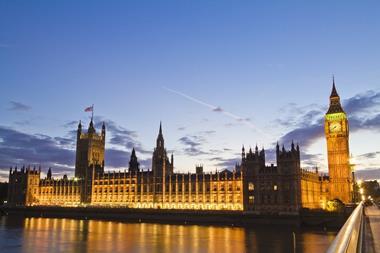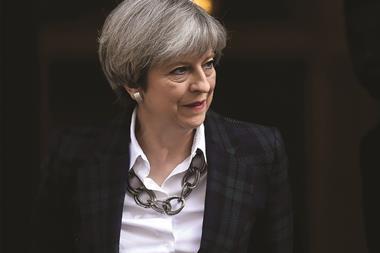The British Retail Consortium has voiced concerns about the Government’s no-deal tariff scheme, which was unveiled this morning.
Following the rejection of Theresa May’s Brexit proposals in the House of Commons last night, the Government today published details of a tariff regime be introduced in the event that the UK crashes out of the EU without a deal.
Under the scheme, which would last for 12 months, 87% of all imports would be eligible for zero-tariff access and mark a shift towards favouring products produced in non-EU countries.
Eighty-two per cent of EU imports would be tariff-free, down from 100% at present. 92% of imports from outside of the EU would be tariff-free, compared to 56% at the moment.
However, BRC chief executive Helen Dickinson flagged concerns about tariffs on certain clothing and textiles imports.
She said: “Consumers look to be no better off as a result of a mix of tariffs and quotas on food and other products. We remain particularly concerned about tariffs on certain clothes and textiles – a good proportion of which consumers were getting tariff-free from countries like Italy and Turkey.
Dickinson was also worried about the implications for cross-border trade with the Republic of Ireland.
She said: “The announcement that there will be no enforcement of custom checks and tariffs moving across the Irish border presents the biggest risk. Without these checks and controls, and with essentially a different tariff schedule in operation, the system would be a goldmine for criminals seeking to take advantage of a no deal Brexit.”
She reiterated the BRC’s concerns that non-tariff barriers, such as customs checks and control and increased documentation, would have “the greatest impact on consumers”.
Dickinson said: “It is the non-tariff barriers which will have the greatest impact on consumers. Tariffs, checks, and increased documentation requirements will all result in delays, higher prices, and reduced choice for consumers. This is an inevitable consequence of a no deal Brexit.”
She concluded: “Parliament must find a way of taking no deal off the table or risk harming the people and businesses of Great Britain and Northern Ireland.”
If Parliament votes a no-deal Brexit down tonight, it will then vote again tomorrow on whether to request an extension on leaving the EU. Even if this vote passes however, all of the EU 27 countries will then need to unanimously agree to grant such an extension.
May’s deal was defeated for the second time last night by 149 votes in the House of Commons.


























No comments yet